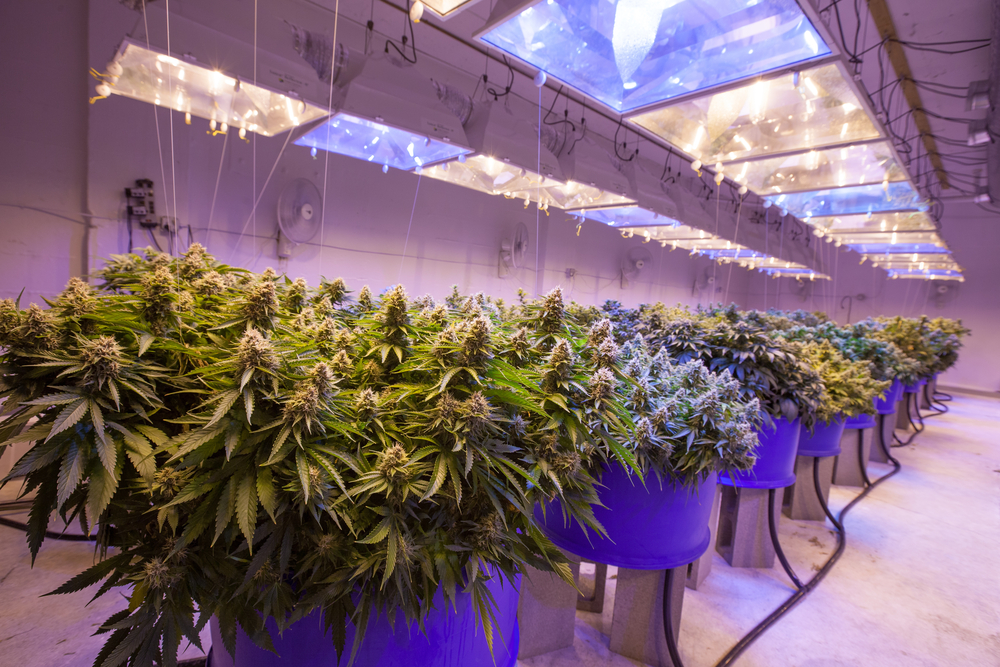Share This Article
If you cultivate 999 cannabis plants outdoors, will you face the same penalties as someone who cultivates 50 cannabis plants indoors?
You can expect to face up to 15 years prison or a fine of up to $385,000 (or both) for cultivating between 50 -199 cannabis plants indoors (‘enhanced indoor means’). This range of plants is referred to as the commercial quantity of drugs.
This can be found in section 33(2)(b), and section 23(2)(a) of the Drug Misuse and Trafficking Act 1985 (NSW).
If you cultivate cannabis plants outdoors (not inside a building or house), then the commercial quantity is between 250 -999 cannabis plants. For this, you will still face the same penalties of up to 15 years prison or $385,000 fine (or both).
You can expect to face up to 20 years prison or $550,000 fine (or both) for cultivating 200 or more cannabis plants, where the cultivation is done indoors (‘enhanced indoor means’). This quantity of cannabis plants is referred to as large commercial quantity.
You will face the same penalties if you cultivate 1000 or more cannabis plants, where the cultivation is outdoors.
This is reflected in s33(3)(b) Drug Misuse and Trafficking Act 1985 (NSW).
This means, where you cultivate 1000 cannabis plants outside, you will therefore face the same maximum penalties as someone who cultivates 200 cannabis plants indoors (in a building or house).
Why?
This is because cultivating indoors -inside a building or home (by ‘enhanced indoor means’) produces higher yields.
What is ‘Enhanced Indoor Means’?
‘Enhances indoor means’ is where the drugs are cultivated inside a house or building with the use of artificial light or heat, spraying nutrient solutions, or nurturing the plants in nutrient enriched water (with or without mechanical support). This is also known as indoor cultivation or production.
What is ‘Cultivation’?
‘Cultivation’ includes doing something as simple as watering the plants. It also includes planting, nurturing, harvesting, or growing the plants.
You will be committing an offence of cultivating prohibited plants, whether it’s indoors or outdoors, even if you takes steps, or cause steps to be taken in the process of planting, nurturing, harvesting, or growing it.
Will you go to prison for cultivating?
The Court consider cultivating drugs very seriously. Judges and Magistrates have said countless times, that a clear message needs to be sent to the community for offences of dealing with drugs.
Courts have long recognized the significant social consequences of the criminal trade of drugs, including corruption, serious violence and the undermining of legitimate businesses. It is considered and is hazardous to society.
The case of R v Godden [2005] NSWCCA has said that a term of imprisonment is expected where the cultivation is grown for profit (distinct from a personal use). The only exception to that general rule is where the court finds exceptional circumstances (something different from the general run of those cases). If exceptional circumstances are found, you will more likely avoid full time prison as a punishment.
Basically, cultivating prohibited drugs for personal use is considered less serious than doing it for profit. You can therefore expect a heavier punishment where you are found to do it for a profit.
Even where you are found to be dealing with drugs for profit where there are no exceptional circumstances regarding a cultivating offence, the court can still consider alternatives to full time prison. There are lots of preparatory steps required to be taken prior to a sentence in court in order for you to be in the best position to convince a Judge to not send you to Full time jail. This is why it’s highly recommended to get advice and guidance from an experienced drug lawyer.
You can find a handful of very good drug lawyers in Sydney, Parramatta and Liverpool- but it’s important to get someone you feel comfortable with.
Defences to Cultivating Prohibited Drug Charges
The court will find you not guilty for cultivating prohibited plants or drugs if any one of the following defences apply to your case:
- You were forced by way of threats to cultivate.
- Your actions didn’t amount to ‘cultivating’ the plants. For example, where you didn’t water the plants or do anything in relation to effecting the plants.
- The plant(s) found are not actually a ‘prohibited plant’.
- You possessed the prohibited plants under a prescription which you received from a qualified doctor, vet, dentist, midwife or nurse.
- You honestly didn’t know or suspect that the plants were prohibited plants in such circumstances that you could not reasonably be expected to have known or suspected that they were prohibited plants.
- Where you’re charged for cultivating for a commercial purpose by enhanced indoor means:
- You didn’t intend to sell the plants, and you were unaware that anyone else intended to do so; or
- You didn’t cultivate within a building, nor nurtured or promoted the plants growth.
- Where you’re charged for exposing a child from cultivating:
- The exposure did not cause a health or safety danger to the child.
What are the Penalties for Cultivating Prohibited Plants in NSW?
Penalties for Cultivating, Supply or Possess Prohibited Plants
| Quantity | If Local Court | If District Court |
| Small Q | 2 years imprisonment and/or $5,500 fine | 10 years imprisonment and/or $220,000 fine |
| Indictable Q | 2 years imprisonment and/or $11,000 fine | 10 years imprisonment and/or $220,000 fine |
| Commercial Q | Cannot be dealt with in Local Court | 15 years imprisonment and/or $385,000 fine |
| Large Commercial Q | Cannot be dealt with in Local Court | 20 years imprisonment and/or $550,000 fine |
Penalties for Cultivating Prohibited Plants by Enhanced Indoor Means
| Quantity | If Local Court | If District Court |
| Small Q | 2 years imprisonment and/or $5,500 fine | 10 years imprisonment and/or $220,000 fine |
| Indictable Q | 2 years imprisonment and/or $11,000 fine | 10 years imprisonment and/or $220,000 fine |
| Commercial Q | Cannot be dealt with in Local Court | 15 years imprisonment and/or $385,000 fine |
| Large Commercial Q | Cannot be dealt with in Local Court | 20 years imprisonment and/or $550,000 fine |
Penalties for Cultivating Prohibited Plants by Enhanced Indoor Means for Commercial Purpose
| Quantity | If Local Court | If District Court |
| Small Q | Cannot be dealt with in Local Court | 15 years imprisonment and/or $385,000 fine |
| Indictable Q | Cannot be dealt with in Local Court | 15 years imprisonment and/or $385,000 fine |
| Commercial Q | Cannot be dealt with in Local Court | 15 years imprisonment and/or $385,000 fine |
| Large Commercial Q | Cannot be dealt with in Local Court | 20 years imprisonment and/or $550,000 fine |
Penalties for Cultivating Prohibited Plants by Enhanced Indoor Means in Presence of Child
| Quantity | If Local Court | If District Court | For Commercial Purpose in District Court |
| Small Q | 2 years imprisonment and/or $5,500 fine | 12 years imprisonment and/or $264,000 fine | 18 years imprisonment and/or $462,000 fine |
| Indictable Q | 2 years imprisonment and/or $11,000 fine | 12 years imprisonment and/or $264,000 fine | 18 years imprisonment and/or $462,000 fine |
| Commercial Q | Cannot be dealt with in Local Court | 18 years imprisonment and/or $462,000 fine | 18-years imprisonment and/or $462,00 fine |
| Large Commercial Q | Cannot be dealt with in Local Court | 24 years imprisonment and/or $660,000 fine | 24 years imprisonment and/or $660,000 fine |
Drug Quantity Categories for Cannabis Plants Cultivated by Enhanced Indoor Means
| Prohibited Plant | Small Qty. | Traffickable Qty. | Indictable Qty. | Commercial Qty. | Large Commercial Qty. |
| Cannabis Plant | 5 | - | 50 | 50 | 200 |
Drug Quantity Categories for Cannabis Plants Cultivated Outside
| Prohibited Plant | Small Qty. | Traffickable Qty. | Indictable Qty. | Commercial Qty. | Large Commercial Qty. |
| Cannabis Plant | 5 | - | 50 | 250 | 1000 |
Is Marijuana considered a “recreational Drug”?
Chief Justice McClellan in the case or R v Nguyen [2006] NSWCCA 389 has said that the courts now recognize that “marijuana can have very serious consequences for users with destructive potential for the lives of young persons/ the legislature has recognized this damaging potential.”
The assumptions in the past years that Marijuana is a “recreational drug” with low addictive qualities and less potential health dangers has now appeared to have changed by the courts.
Some Cases on Cultivating Prohibited plants
R v Mangano [2006] NSWCCA 35
Mr. Mangano was charged and sentenced for cultivating 6,700 cannabis plants outdoors on a property in Dubbo from 2002 to 2003. This fell within the large commercial quantity range.
He was found to have participated in this with a motive for financial gain-profit.
The extent of his involvement was setting up and growing the cannabis crop by:
- Clearing the site for the crop
- Giving advice in the preparation of the soil for plantation
- Arranging food and materials required for the other workers
- Arranging machines
- Arranging for the mother plants to the property and helping in the cloning from those mother plants
- He attended the farm once a week, stayed overnight on occasions and was expecting to receive up to $100,000 if the work was successful.
The street value of the crop was estimated to be around $20 million.
Mr. Mangano was sentenced to a term of imprisonment of 2 years to be served by way of periodic detention. (this type of punishment has since be abolished, and replaced with other types of punishment such as home detention and Intensive Correction Orders, which are again about to be changed under the new sentencing laws in NSW).
R v Edwards [1999] NSWCCA 411
Ms. Edwards, aged 38 was charged and sentenced for cultivating 185 cannabis plants up to 1 meter in height on her property at Temagog, NSW with her defacto husband. The plants were found to be growing in a shed, and she has owned the farm for about 10 years.
The amount of plants were less than the commercial quantity, but she had been growing them for about 1 year.
Police found $100,000 cash in the house which represented the proceeds of the sale of the cannabis in the past.
The court found that she had been involved in a sophisticated hydroponic system, and was sentenced prison for 5 months, 1 week and 2 days.
Book a Lawyer Online
Make a booking to arrange a free consult today.
Call For Free Consultation
Call Now to Speak To a Criminal Defence Lawyer
Over 40 Years Combined Experience
Proven SuccessAustralia-Wide
Experienced LawyerGuarantee
 (02) 8606 2218
(02) 8606 2218
 (02) 8606 2218
(02) 8606 2218















